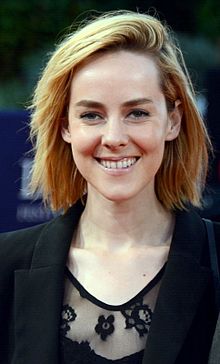WELCOME THE NEWCOMERS TO THE HARRY POTTER UNIVERSE…
ROBERT PATTINSON
CEDRIC DIGGORY
Were you a Harry Potter fan before you got this part?
I’d never read any of the books and hadn’t seen the movies either, so I can’t really claim to have been a fan. I say I’m a fan of Arsenal and I don’t know anything about them – it’s kind of the same thing. When I got told I had the audition I read the book in, like, a day and knew that I’d love the part. I think there’s something really special about the books and I think people are going to watch these movies years from now.
Your character is part of a love triangle with Cho Chang and Harry – is he sympathetic?I think Cho wants to be with me more – I’m not standing between anybody! He should be a sympathetic character, but there’s a thing about head boys – a lot of people hate them for no reason, especially if they do everything right. But Cedric is just a quiet guy who instinctively doesn’t do horrible things – so hopefully he’ll be sympathetic. His main description is the ‘strong, silent type.’
Was it a thrill working with Mike Newell?
It was a thrill being part of Harry Potter – it’s like being part of the Bond Franchise. But Mike Newell – I loved Donnie Brasco. He’s a great director. I got on with him really well and I really liked him.
Did you get starstruck by any of the other actors?
With Alan Rickman I don’t think I knew what to say to him the whole way through. Warwick Davis, who’s Willow, I did a scene with him and I was, like, completely and utterly… ‘You know, because Willow was my favourite film in my childhood. He was the only person I asked for an autograph out of all of them.
What was your favourite scene to shoot?
The Maze scene. It was really fun, hopefully it’ll look really good, it was really exciting to film because it was all for real – it was just me and Dan and a Steadicam, so it was really, really exciting. That’s what all acting should be like!
What was the hardest scene?
Well – my death!
KATIE LEUNG
CHO CHANG
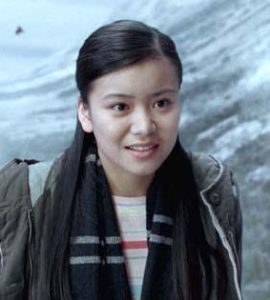 You beat 5,000 people for the role of Cho Chang. That must have been nerve-wracking…
You beat 5,000 people for the role of Cho Chang. That must have been nerve-wracking…
Because I just went for a bit of fun, I was really relaxed about the whole thing! I’ve not really thought about it until people started saying ‘Well, you beat 5,000 girls!’ and that’s when I think, ‘Yeah. I did!’ I’m really surprised because I’d never acted before and didn’t realise I could act until I went to the auditions.
What made you want to audition, because your dad has said you’d never even acted in school plays before?
It was such a coincidence: he was watching TV and he was practically falling asleep when the advert came on saying ‘If you’re 16 and you’re a girl and you’re of Oriental appearance and you come from Britain – then you should try out for a role in Harry Potter.’ And he thought that sounded like me.
Did you have to lose your Scottish accent?
No I didn’t I got to keep it – yeah, it was great. The book doesn’t really mention what kind of accent she has so everyone’s going to expect an English accent so when I do speak I think it’s going to surprise a few people, which’ll be cool.
Do you get to kiss Daniel?
You’ll have to wait and see! But the scenes we had involved a lot of teasing – looking but no touching because I have a boyfriend in this film.
Is it true you’ve received hate mail from jealous girls?
No. I’ve received so much fan mail and they’re all so supportive, and it’s really encouraging. I mean. I’m sure there are a few jealous girls because Dan has so many female fans.
In a film dominated by boys, did you form a bond with Emma?
Yeah, we did, we had a good chat. Obviously she’s given me some advice and I was asking her about the premiere – what it’s going to be like and she was telling me to make the most of it. ‘It’s your day, it’s going to be amazing so just enjoy it.’ And she also said keep level-headed and stay grounded.
Do you see acting as a career now?
If it was the same with every film as it was with Harry Potter then definitely. I’ve had the time of my life doing this.
STANISLAV IANEVSKI
VIKTOR KRUM
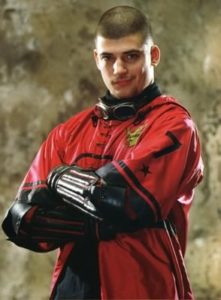 Were you a fan of the Harry Potter stories before joining the cast?
Were you a fan of the Harry Potter stories before joining the cast?
I was a fan but I hadn’t read the books – I’d only seen the films. As soon as I got the part I read book number 4 and I studied Viktor Krum so I could bring him to life in the film.
What do you like about Viktor?
I actually like everything about him – he’s a superstar in Quidditch, he’s obviously the champion of Durmstrang, so he’s the best boy in the school! He’s quite a tough character – physically he gives an impression of power whatever he does, but at the same time he’s got a big heart. I like every aspect of him – he’s quite similar to me!
Acting’s in your family?
Yeah, well it’s sort of in the roots: my grandma acted in black and white Bulgarian films and my dad’s been in two films. He was spotted and asked to be in two films and my mother’s been in a couple as well but not professionally.
Did you want to go into acting?
Like everyone, when I was young I dreamt of being a Hollywood star but I never thought it could happen. A year ago I was a normal guy and now I’m sitting here having interviews!
Did you train for the film?
Well I’m always been training but during filming we have to do loads of specific training for the tasks. For the underwater scenes we had to learn how to scuba dive and how to take masks off underwater and there was a scene where Viktor dives off the Durmstrang ship so I had to learn how to dive for that.
And how were the ballroom dancing lessons?
We had a choreographer for the Yule Ball and I think we were training for about two weeks. We were supposed to be doing a Waltz but it’s actually a bit more than a Waltz because it has special music which everything is designed for – so it has to look magical. We had great fun and it’ll hopefully look good on screen.”
Have you been surprised by the Harry Potter fans?
Yes. I’ve been on the internet becauseI want to see what they think of me as Viktor. He’s quite skinny in the book and I don’t quite look like that! They were quite positive comments. It was really funny reading about the hair – in the book Viktor’s hair is long but mine’s short in the film.
Are you looking forward to the premieres and having girls screaming at you?
Definitely, but I don’t know how much they’ll be screaming for me!

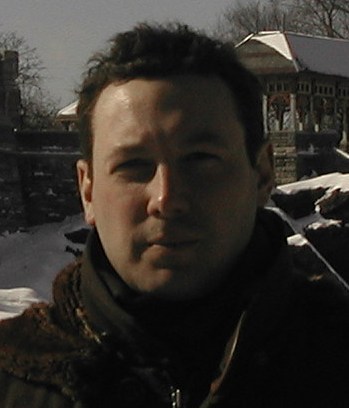
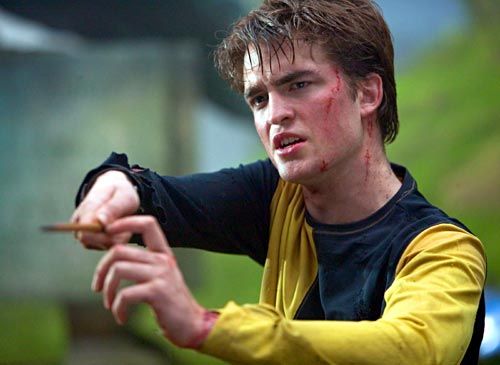
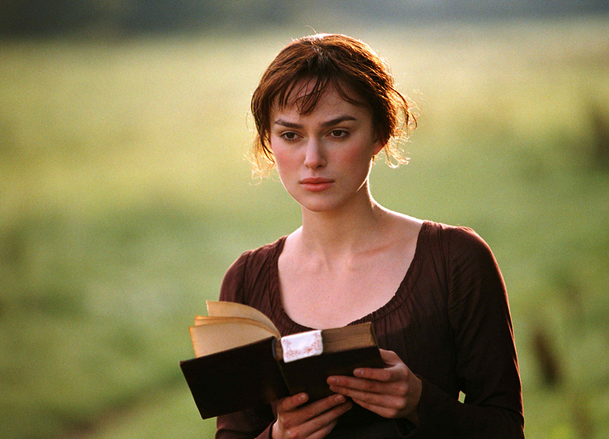
 The only fly in the ointment of sisterly affection is Johnny Depp. Both actresses have worked with him, Pike on 2004’s The Libertine and Knightley on the Pirates of the Caribbean films.
The only fly in the ointment of sisterly affection is Johnny Depp. Both actresses have worked with him, Pike on 2004’s The Libertine and Knightley on the Pirates of the Caribbean films.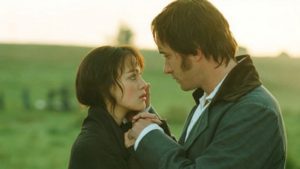 The other man in Elizabeth Bennett’s life is her elderly father. Although a small part, Mr Bennett’s cantankerous but loving personality permeates the story, requiring an actor blessed with incredible presence. With Donald Sutherland, the production got that in spades.
The other man in Elizabeth Bennett’s life is her elderly father. Although a small part, Mr Bennett’s cantankerous but loving personality permeates the story, requiring an actor blessed with incredible presence. With Donald Sutherland, the production got that in spades.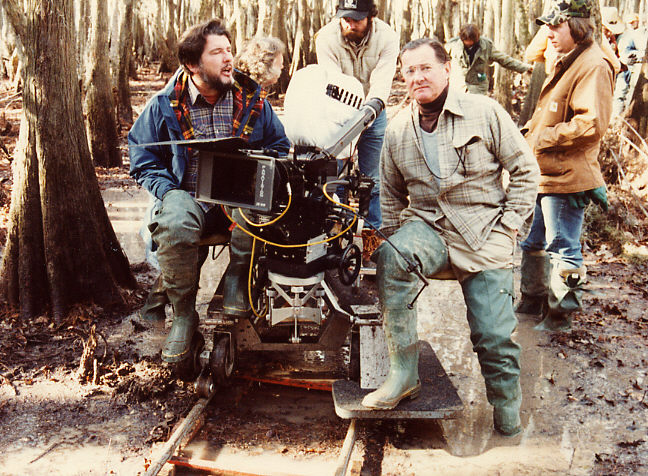
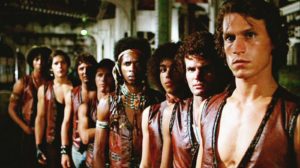 “We made it on the shoestring, shooting almost entirely on location during New York’s wettest summer in 75 years. And we were in some very rough neighbourhoods. It was controversial when it came out in ’79 but, looking at it now, with all these kids running around wearing masks, you’ve got to wonder where the national peril is. But the main problem was that the film didn’t critique gangs. For my protagonists, the gang is a positive, protective force. I think that upset a lot of people.”
“We made it on the shoestring, shooting almost entirely on location during New York’s wettest summer in 75 years. And we were in some very rough neighbourhoods. It was controversial when it came out in ’79 but, looking at it now, with all these kids running around wearing masks, you’ve got to wonder where the national peril is. But the main problem was that the film didn’t critique gangs. For my protagonists, the gang is a positive, protective force. I think that upset a lot of people.”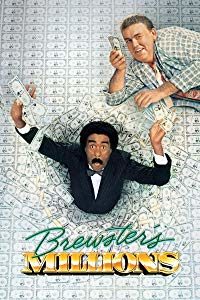 “Richard Pryor wasn’t a terribly happy guy at that point but I liked working with him. I think he was in a horrible dilemma – he felt that if he didn’t use drugs he wasn’t funny, and if he did use drugs, he would die. That’s a hell of position to find yourself in. I thought this was one of his finest performances. John Candy was a great talent, too. A terrific guy. I miss him. He was a friend.”
“Richard Pryor wasn’t a terribly happy guy at that point but I liked working with him. I think he was in a horrible dilemma – he felt that if he didn’t use drugs he wasn’t funny, and if he did use drugs, he would die. That’s a hell of position to find yourself in. I thought this was one of his finest performances. John Candy was a great talent, too. A terrific guy. I miss him. He was a friend.”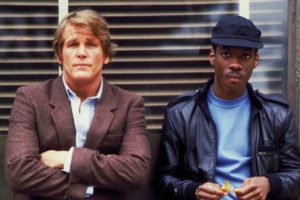 “I originally wanted Richard [Pryor] but that never happened and then we tried to get Greg Hines but he couldn’t get out of another project. Eddie Murphy had a very clever agent, who later became my wife, who knew of our dilemma. She sent me a bunch of tapes of Eddie on Saturday Night Live and I thought he was terrific.”
“I originally wanted Richard [Pryor] but that never happened and then we tried to get Greg Hines but he couldn’t get out of another project. Eddie Murphy had a very clever agent, who later became my wife, who knew of our dilemma. She sent me a bunch of tapes of Eddie on Saturday Night Live and I thought he was terrific.”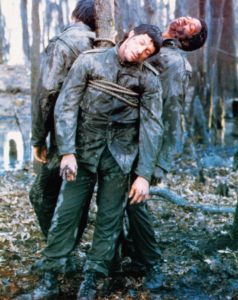
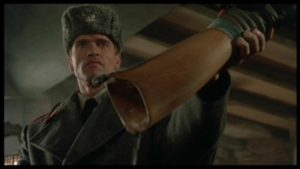
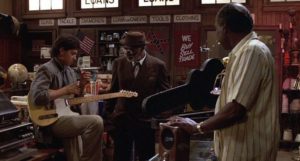
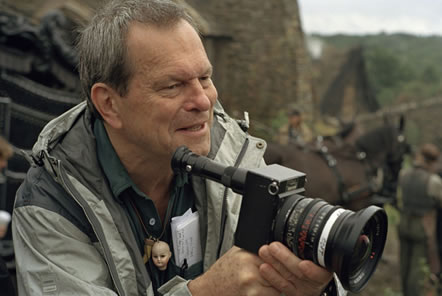
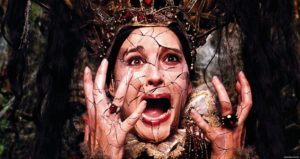 “It would have been nice if we could’ve got a PG in the States,” says Gilliam. And he’s not joking; he’s genuinely puzzled that adults deem the film too scary for children. And he’s got a point. Yes, the film is macabre but, as is often the case with Gilliam’s work, it’s tempered by a warm-hearted sense of ludicrous. It’s frightening in the same way that, well, the best fairytales are.
“It would have been nice if we could’ve got a PG in the States,” says Gilliam. And he’s not joking; he’s genuinely puzzled that adults deem the film too scary for children. And he’s got a point. Yes, the film is macabre but, as is often the case with Gilliam’s work, it’s tempered by a warm-hearted sense of ludicrous. It’s frightening in the same way that, well, the best fairytales are.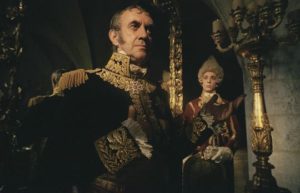 And The Brothers Grimm has them in spades. Not only does Peter Stormare (seen recently as Satan in Constantine), chew the scenery as an idiotic Italian mercenary, but Gilliam is once again reunited with Jonathan Pryce. Having starred as a beleaguered bureaucrat in Brazil, here he pops up as a general in Napoleon’s army, complete with silly French accent, in many ways reprising his role as Baron Munchausen’s unimaginative bean-counting nemesis to. This triumph of the fantastical over rationalism is another key theme of Gilliam’s films.
And The Brothers Grimm has them in spades. Not only does Peter Stormare (seen recently as Satan in Constantine), chew the scenery as an idiotic Italian mercenary, but Gilliam is once again reunited with Jonathan Pryce. Having starred as a beleaguered bureaucrat in Brazil, here he pops up as a general in Napoleon’s army, complete with silly French accent, in many ways reprising his role as Baron Munchausen’s unimaginative bean-counting nemesis to. This triumph of the fantastical over rationalism is another key theme of Gilliam’s films.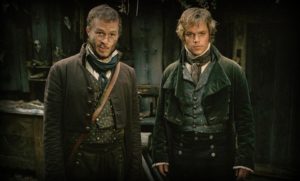 By setting the Brothers Grimm in a historically accurate setting of Napoleonic Europe, Gilliam is able to explore this theme, albeit with full-on fantasy elements. An added bonus for the director, if his mischievous cackle is anything to go by, seems to be that he gets to mock the French.
By setting the Brothers Grimm in a historically accurate setting of Napoleonic Europe, Gilliam is able to explore this theme, albeit with full-on fantasy elements. An added bonus for the director, if his mischievous cackle is anything to go by, seems to be that he gets to mock the French.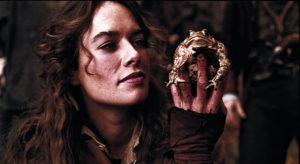 Evil witches and enchanted forests notwithstanding, The Brothers Grimm is a gritty, bloody and muddily authentic version of history, typical of Gilliam. This extends to some gruesome scenes in which Angelicka the hunter, played by Huddersfield-born Lena Heady, is seen skinning and gutting a rabbit. Not only did this contribute to the film’s PG-13 certificate, but it caused Heady, a strict vegetarian, much consternation. Predictably, this is a source of great amusement to Gilliam.
Evil witches and enchanted forests notwithstanding, The Brothers Grimm is a gritty, bloody and muddily authentic version of history, typical of Gilliam. This extends to some gruesome scenes in which Angelicka the hunter, played by Huddersfield-born Lena Heady, is seen skinning and gutting a rabbit. Not only did this contribute to the film’s PG-13 certificate, but it caused Heady, a strict vegetarian, much consternation. Predictably, this is a source of great amusement to Gilliam.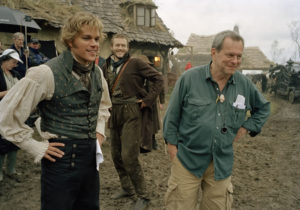 “It’s very bizarre,” he says of the show that launched him. “We’ve each done a personal best that’s coming out on DVD soon and looking at the episodes today it’s shocking how bad it is. It’s so cheesy, it’s so cheap and yet it’s still really funny. Nothing’s come along and matched it. I don’t know why. The League of Gentleman I loved because I thought they captured a similar grotesqueness. But that ‘ex-Python’ thing will always be there. It’ll be on the gravestone, depending on what I do next. Maybe,” he chuckles, “it will say ex-Bond Girl…”
“It’s very bizarre,” he says of the show that launched him. “We’ve each done a personal best that’s coming out on DVD soon and looking at the episodes today it’s shocking how bad it is. It’s so cheesy, it’s so cheap and yet it’s still really funny. Nothing’s come along and matched it. I don’t know why. The League of Gentleman I loved because I thought they captured a similar grotesqueness. But that ‘ex-Python’ thing will always be there. It’ll be on the gravestone, depending on what I do next. Maybe,” he chuckles, “it will say ex-Bond Girl…”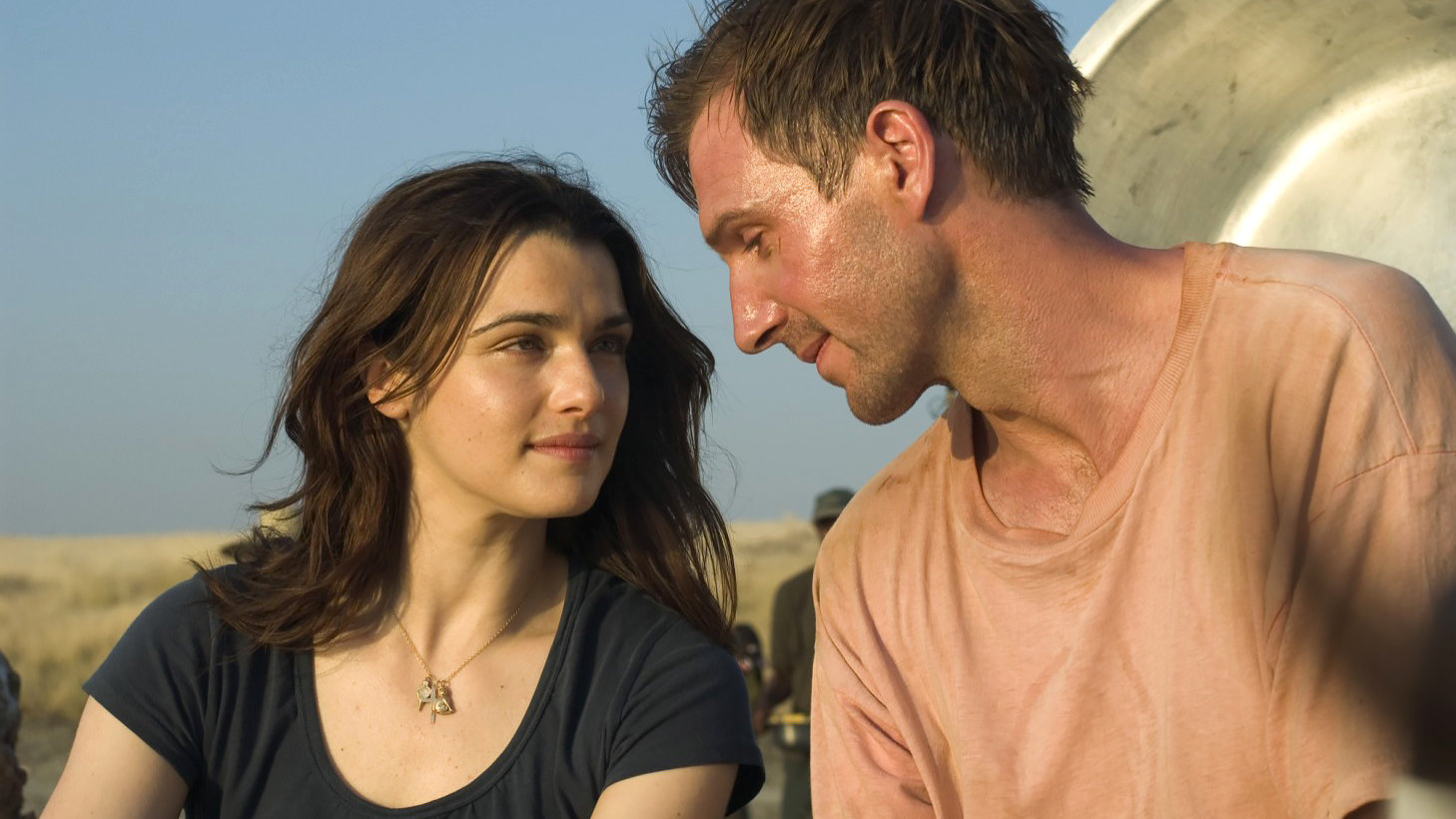
 “Some actors don’t like it,” she says, “but Ralph and I both like to experiment – we both share that desire to play around. Fernando likes to work with complete freedom and spontaneity. Obviously it’s a thriller so there were plot elements we had to retain. But Fernando allowed us to have freedom in some scenes. Like when Ralph’s in the bathroom pretending to be Jacques Cousteau – that wasn’t in the script. That was just him having fun.”
“Some actors don’t like it,” she says, “but Ralph and I both like to experiment – we both share that desire to play around. Fernando likes to work with complete freedom and spontaneity. Obviously it’s a thriller so there were plot elements we had to retain. But Fernando allowed us to have freedom in some scenes. Like when Ralph’s in the bathroom pretending to be Jacques Cousteau – that wasn’t in the script. That was just him having fun.”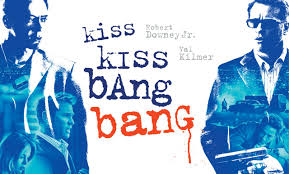
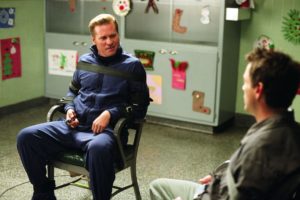 “He’s just so happy he didn’t die,” is how Kilmer affectionately describes his co-star. “Doing this was just so much fun because it’s a wonderful thing to see someone as loveable as him make it back. There are a lot of mean, twisted, tortured people in our business but Robert didn’t do any bad things to other people, he did them to himself. He always had a lot of love and support in the community and Hollywood does so love a comeback.”
“He’s just so happy he didn’t die,” is how Kilmer affectionately describes his co-star. “Doing this was just so much fun because it’s a wonderful thing to see someone as loveable as him make it back. There are a lot of mean, twisted, tortured people in our business but Robert didn’t do any bad things to other people, he did them to himself. He always had a lot of love and support in the community and Hollywood does so love a comeback.”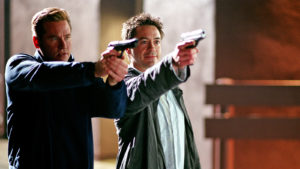
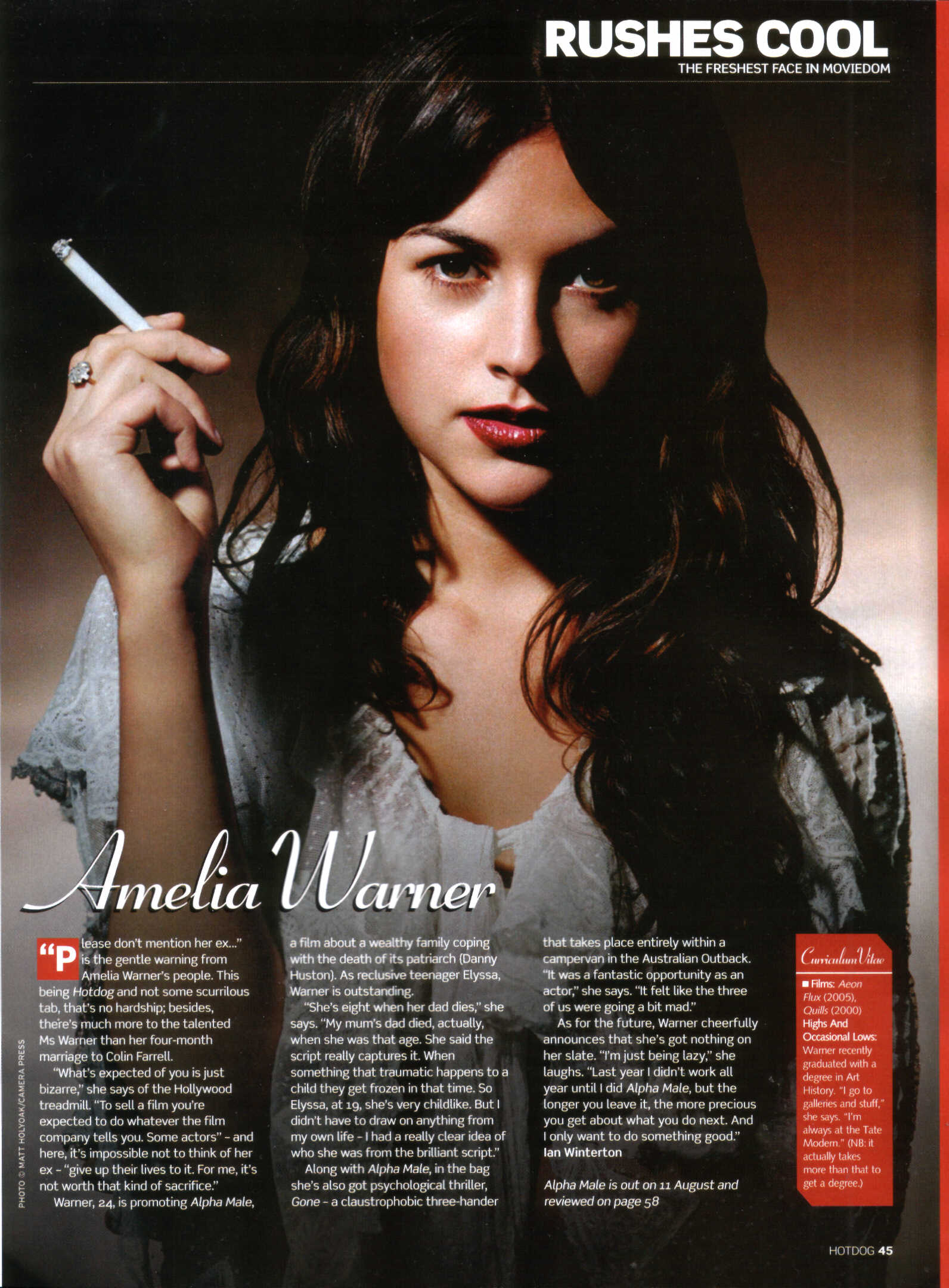
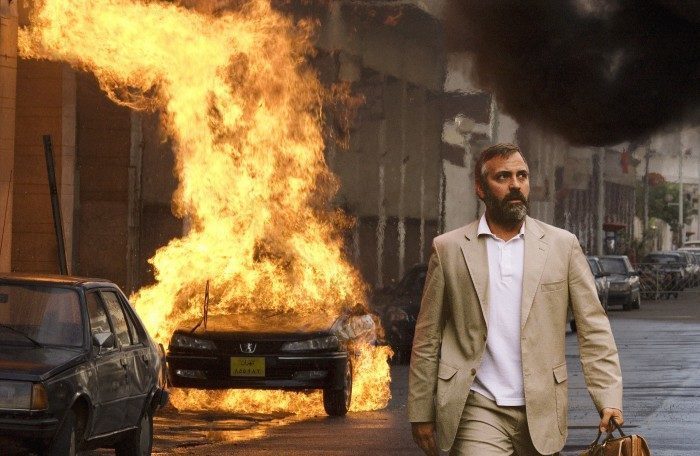
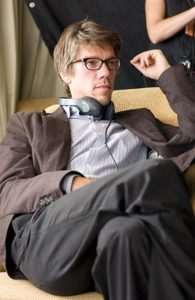 ips.
ips.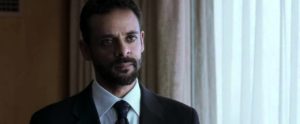 While both Siddig and Clooney have their take on their own character, as the man responsible for every aspect of Syriana, it’s Gaghan who wraps his head around the big picture. Just how big the subject of oil is as it relates to America’s military-industrial complex came to him when he was at the Pentagon.
While both Siddig and Clooney have their take on their own character, as the man responsible for every aspect of Syriana, it’s Gaghan who wraps his head around the big picture. Just how big the subject of oil is as it relates to America’s military-industrial complex came to him when he was at the Pentagon.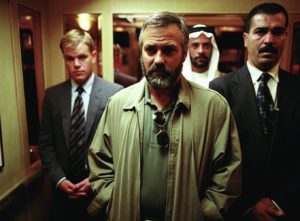 That must have put paid to his legendary partying.
That must have put paid to his legendary partying.
